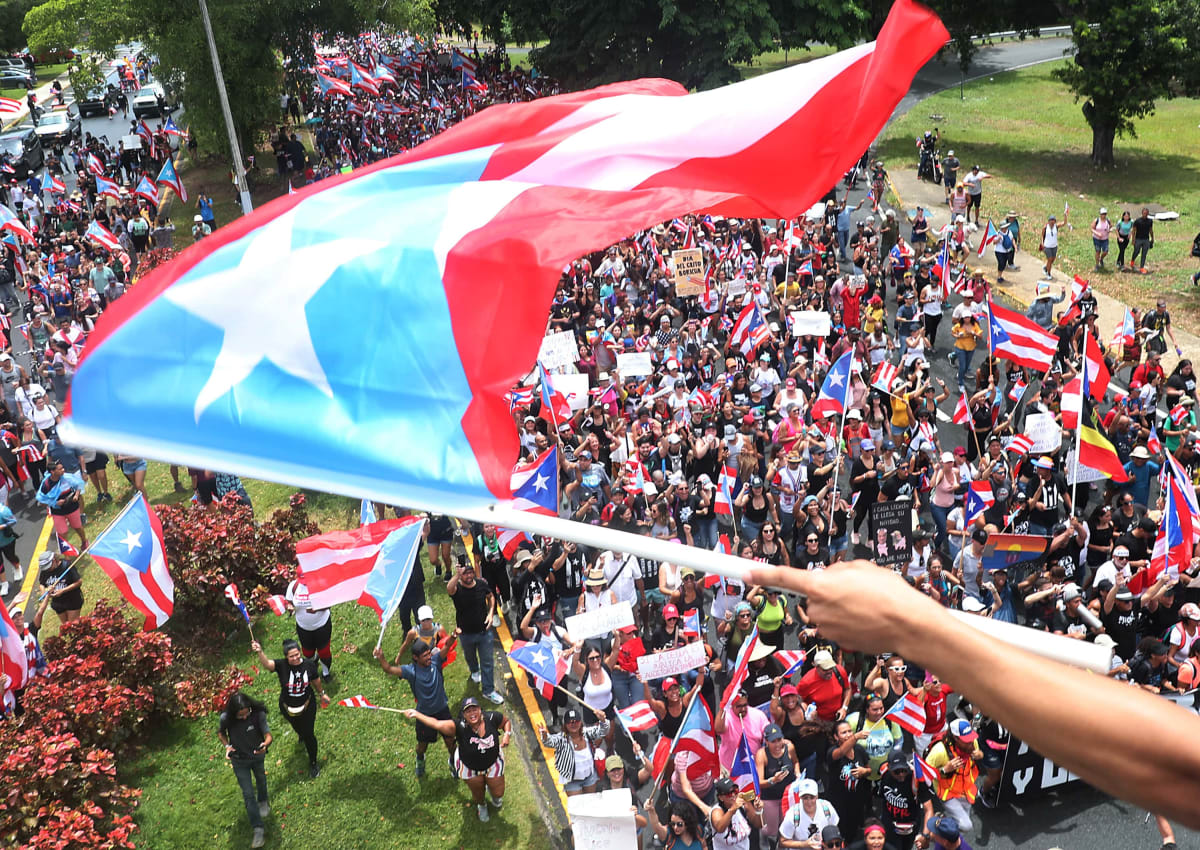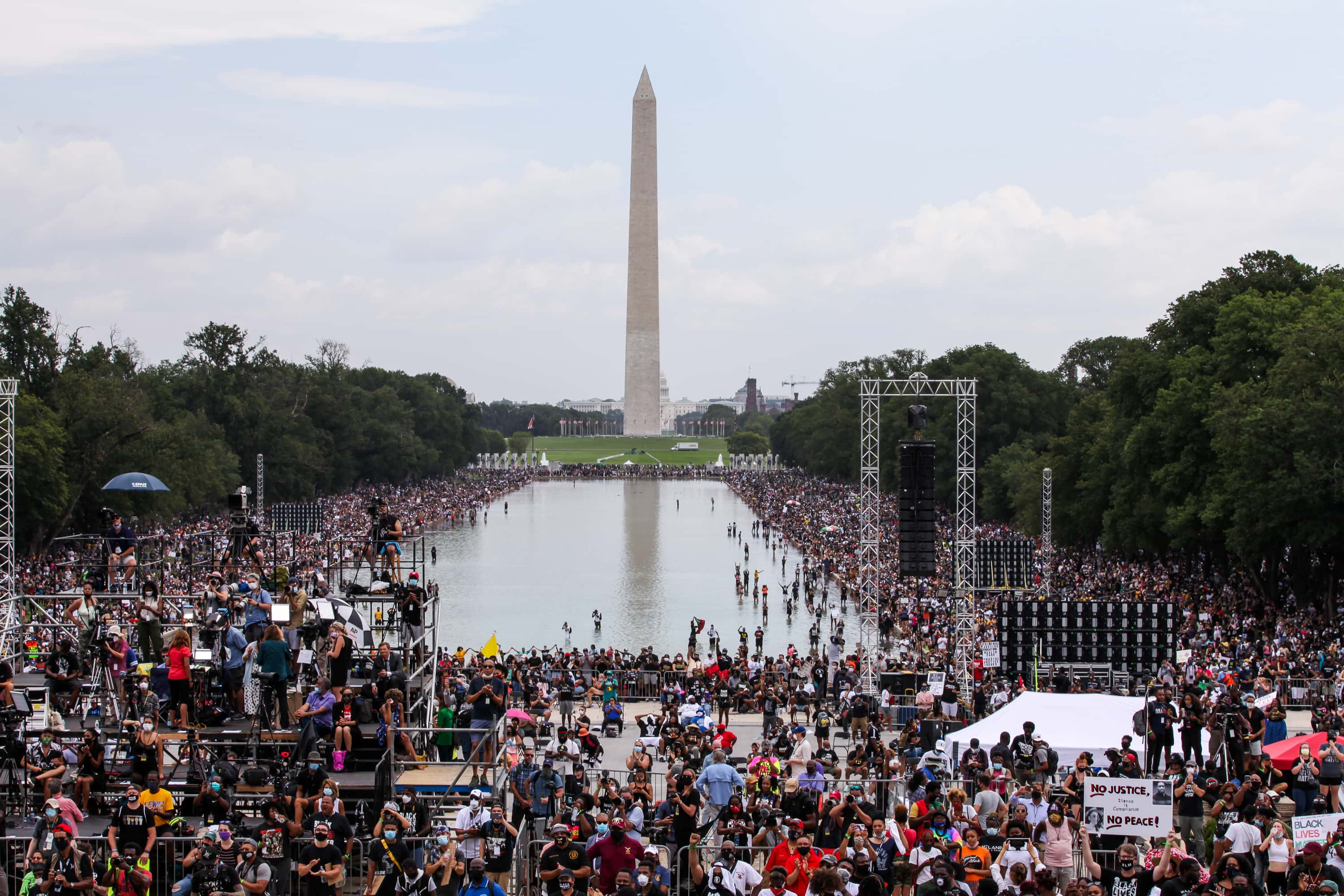Will Washington DC and Puerto Rico become new states? Here's why the Democratic Party is pushing for statehood

With the Republican Party losing all the key power centers — presidency, House and Senate — the Democratic Party is now at an advantage to grant statehood to Washington DC and Puerto Rico, something it has been eyeing for a while now. The House controlled by the blue party has already passed a statehood bill for DC — in a first that such a bill has ever been given a nod by a chamber of Congress.
The Democrats’ support for Puerto Rico’s statehood has also been high. According to a 2019 Gallup poll, 83 percent of the Democrats support Puerto Rico’s statehood while in the Republican camp, it is only 45 percent.

Last September, Darren Soto, a Democratic representative from Florida, said referring to President-elect Joe Biden: “We see both Puerto Rico and DC statehood surging into the mainstream debate over the past couple of weeks in particular with the upcoming plebiscite in November, statements by Vice President Biden... and it’s come into greater focus with the death of Justice Ruth Bader Ginsburg.”
Last June, Biden expressed his support for statehood for DC.
In June 2020, the House voted 232-180 in favor of making the national capital America's 51st state. The residents of DC do not have a voting representation in either the House or the Senate. Those living in the District pay federal taxes but have little say on how their tax dollars are spent. DC has a population of more than 720,000 people, more than that of Vermont and Wyoming.
On Election Day in November 2020, Puerto Ricans voted in favor of a referendum to become a state. Fifty-two percent spoke in support of statehood while 48 percent did not. Puerto Rico has been part of the US since 1989 and its residents are American citizens since 1917. In 1952, Puerto Rico got commonwealth status with a local self-government.
However, its residents are not allowed to vote in the presidential election and do not have a voting representation in either the House or Senate. This, despite Puerto Rico having a population (over three million) larger than that in 17 states of the US and DC.

What will happen in Congress if DC and PR become states?
If DC and Puerto Rico become new states of the Union, it will see the emergence of four new senators — two for each of them. In the House, the DC will get one seat while Puerto Rico can have upto four seats, according to the Center for Politics, University of Virginia.
The size of the House is likely to remain 435 as five other states could see their respective share in the House going one seat less in the 2020 apportionment. Those five states are New York, Montana, Florida, Texas and Illinois.
What are the political implications?
For the Democrats, a new state of DC does them a favor politically. Given the area having a bigger support base for the blue party, it is highly likely that they get both senators from DC if it emerges as a new state.
However, Steve Forbes wrote in Forbes last September that there could also be serious constitutional barriers to DC becoming a state and “the Democrats’ solution to skirting them would create a preposterous situation whereby, literally, a handful of people could swing a close presidential election”.
In the case of Puerto Rico, the conclusion might not be too straight even though it is generally believed that the Democratic Party will benefit more than the GOP if it becomes another state. The GOP Senate leadership is against granting Puerto Rico statehood, apprehending that it will become a blue bastion and given the treatment that Puerto Rico got from the outgoing Donald Trump administration, it could be less likely that the GOP does better there than the Dems.
The matter, however, has evolved as a partisan one. While more Democrats have come out in support of Puerto Rico’s statehood, some Republicans, too, have demanded the same. Puerto Rico’s Resident Commissioner Jenniffer González-Colón, a Republican, said Republicans who fear the island would consistently yield two Democratic senators simply don’t understand Puerto Rico’s residents, The Hill reported last September.
“They don’t know how conservative Hispanics and Puerto Ricans are, and they don’t know the number of Puerto Ricans who have fought in the armed forces, and they don’t know the platform of the Republican Party, which for the last 45 years has supported statehood,” she said.
The Hill also reported that while the DC statehood issue has wide political support within the District, the Puerto Rico statehood issue is more complicated. “The Puerto Rico statehood process would be simpler than in Washington, requiring only a majority in both chambers and the president’s signature, following the processes that made Alaska and Hawaii states in the late 1950s,” the report read.
Democrats stand to gain more if DC, PR become states
If both DC and Puerto Rico become states, three or four of the Senate seats from them are likely to be won by the Democrats and that will put them at an advantage in the chamber. Besides, as this piece in International Policy Digest says, the Dems are also likely to gain a handful of House seats. It said the new states' electoral votes would likely to go the Democratic candidates and that could go a long way in influencing presidential elections in the future.
"The adoption of these two territories as states would also challenge the overrepresentation of sparsely-populated Republican states in the Senate because these small territories would add three or four reliable Democratic Senate seats, in the same way that Wyoming and Alaska reliably provide two Republican seats.
This may explain the large gap between party identification and support for both territories’ statehood. Democrats are likely looking for political gains, while Republican disapproval shows fear of a political loss," the report adds.










